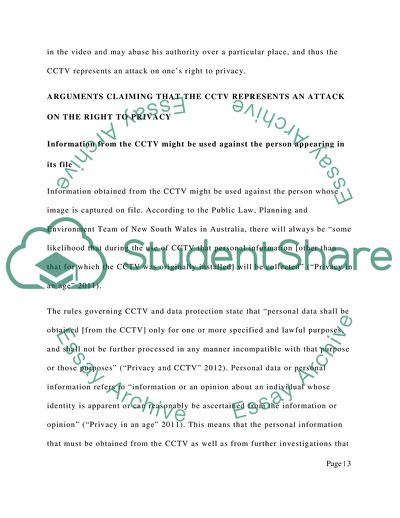Cite this document
(CCTV: An Attack on Ones Privacy Case Study Example | Topics and Well Written Essays - 1500 words, n.d.)
CCTV: An Attack on Ones Privacy Case Study Example | Topics and Well Written Essays - 1500 words. https://studentshare.org/technology/1779433-how-far-do-you-agree-with-the-claim-that-cctv-represents-an-attack-on-the-right-to-privacy
CCTV: An Attack on Ones Privacy Case Study Example | Topics and Well Written Essays - 1500 words. https://studentshare.org/technology/1779433-how-far-do-you-agree-with-the-claim-that-cctv-represents-an-attack-on-the-right-to-privacy
(CCTV: An Attack on Ones Privacy Case Study Example | Topics and Well Written Essays - 1500 Words)
CCTV: An Attack on Ones Privacy Case Study Example | Topics and Well Written Essays - 1500 Words. https://studentshare.org/technology/1779433-how-far-do-you-agree-with-the-claim-that-cctv-represents-an-attack-on-the-right-to-privacy.
CCTV: An Attack on Ones Privacy Case Study Example | Topics and Well Written Essays - 1500 Words. https://studentshare.org/technology/1779433-how-far-do-you-agree-with-the-claim-that-cctv-represents-an-attack-on-the-right-to-privacy.
“CCTV: An Attack on Ones Privacy Case Study Example | Topics and Well Written Essays - 1500 Words”. https://studentshare.org/technology/1779433-how-far-do-you-agree-with-the-claim-that-cctv-represents-an-attack-on-the-right-to-privacy.


